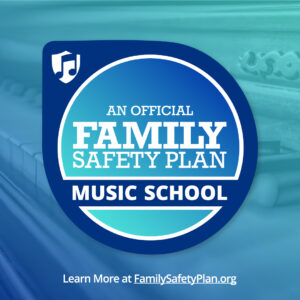The Upward Spiral
In my years of teaching I’ve often noticed that many of my best students, while different in many ways, tend to have one thing in common; they have cultivated a mindset that I like to call the “Upward Spiral”. What is an upward spiral? Well it’s the opposite of the much more well-known downward spiral, of course! But more specifically, it’s a feedback loop where positive experiences in lessons and practice lead to increased excitement and interest in your music, which leads to more practice, which leads to more improvement and positive experiences, and so on. Students in an upward spiral are more engaged, excited, practice longer and harder, get more enjoyment out of playing, make more progress faster and just have more fun in general! A student in an upward spiral plays music because they’ve found how to use it to make themselves feel happy and fulfilled, not just because their teacher told them they have to practice every day. And the best part is that once you’re in an upward spiral, the positive energy feeds back in on itself and becomes self-sustaining. Once you’re on your way up, it’s very hard to stop!
So, are you in an upward spiral? If not, here are some quick tips to help you get there.
1) Find your motivation!
Ask yourself what aspect of music it is that drew you to take lessons in the first place. Do you want to write your own songs? Learn to jam/improvise? Perform on a stage? Just like making cool sounds in your bedroom? Whatever it is, figure out what moves YOU as an individual and cultivate that. And once you’ve figured out what your motivation is, make sure you tell your teacher so they can tailor your lessons to you!
2) Unleash your creativity!
Making music is an inherently creative act, but sometimes if we’re not careful we can lose sight of that. While it’s important to work on the technical aspects of music like practicing scales and fingerings or note reading and theory, sometimes you need to remind yourself that you PLAY an instrument, not WORK an instrument. Practice time should feel more like an art class than a math class, at least most of the time! Get your creative side working by improvising, writing your own music or riffs, or just experimenting in general. Try finding other musicians to work with, or take an Allegro Rock Band class.
3) Make your progress felt!
Playing an instrument takes a long time to master, and sometimes you can get stuck feeling like you’re just spinning your wheels and not making any progress, when in reality you’re improving all the time. Learn to set goals for the short, medium and long term, and you’ll get a rush of achievement when you accomplish them. Practicing scales? Record your speed with a metronome and make a game of trying to beat your best score. Learning a song? Break it into smaller parts and work on them separately so you can see your progress when you master each small section. Set a long term goal like performing in an Allegro recital and feel awesome when you nail it!
These are just a few tips to help you create a positive learning experience and a healthy relationship with music that will keep you coming back for more for years to come. Good luck and happy practicing!

